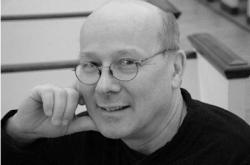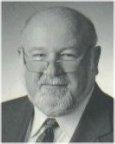1604 - 1651 Person Name: H. Albert Composer of "WALTHAM" in The Church Hymnal Alberti, or Albert, Heinrich, son of Johann Albert, tax collector at Lobenstein, in Voigtland (Reuss), born at Lobenstein, June 28, 1604. After some time spent in the study of law at Leipzig, lie went to Dresden and studied music under his uncle Heinrich Schutz, the Court Capellmeister. He went to Konigsberg in 1626, and was, in 1631, appointed organist of the Cathedral. In 1636 he was enrolled a member of the Poetical Union of Konigsberg, along with Dach, Roberthin, and nine others. He died at Konigsberg, Oct. 6, 1651. His hymns, which exhibit him as of a pious, loving, true, and artistic nature, appeared, with those of the other members of the Union, in his Arien etliche theils geistliche, theils iceltliche zur Andacht, guten Sitten, Keuscher Liebe und Ehrenlust dienende Lieder, pub. separately in 8 pts., 1638-1650, and in a collected form, Konigsberg, 1652, including in all, 118 secular, and 74 sacred pieces. Of the 78 sacred melodies which he composed and published in these 8 pts., 7 came into German common use (Koch, iii. 191-197; Allg. Deutsche Biog., i. 210-212, the latter dating his death, 1655 or 1656). Two of his hymns have been translated into English, viz.:
i. Der rauhe Herbst kommt wieder. [Autumn.] 1st pub. as above in pt. viii., 1650, No. 9, in 9 stanzas of 6 lines, entitled "On the happy departure, Sep. 2, 1048, of Anna Katherine, beloved little daughter of Herr Andreas Hollander," of Kneiphof. Included, as No. 731, in the Unverfalschter Leidersegen, 1851, omitting st. iii., viii., ix.
The translations are:—
(1) "The Autumn is returning," by Miss Manington, 1863, p. 175. (2) "Sad Autumn's moan returneth," in E. Massie's Sacred Odes, vol. ii. 1867, p. 1.
ii. Gott des Himmels und der Erden. [Morning.] First pub. as above in pt. v. 1643, No. 4, in 7 stanzas of 6 lines, included as No. 459 in the Unv. L. S., 1851.
Of this hymn Dr. Cosack, of Konigsberg (quoted in Koch,viii. 186), says:—
"For two hundred years it is hardly likely that a single day has greeted the earth that has not, here and there, in German lands, been met with Alberti's hymn. Hardly another morning hymn can be compared with it, as far as popularity and intrinsic value are concerned, if simplicity and devotion, purity of doctrine and adaptation to all the circumstances of life are to decide."
Sts. ii., iii., v. have been special favorites in Germany, st. v. being adopted by children, by brides, by old and young, as a morning prayer.
The fine melody (in the Irish Church Hymnal called "Godesberg") is also by Alberti.
Translations in common use:—
1. God, the Lord of what's created, in full in J. C. Jacobi's Div. Hymns 1720. p. 35. In his 2nd ed. 1732, p. 169, altered to—" God, the Lord of the Creation " ; and thence slightly altered as No. 478 in part i. of the Moravian Hymn Book, 1754, with a doxology as in the Magdeburg G. B., 1696. In 1789, No. 743, altered to—"God, omnipotent Creator"; with st. ii., iv., vii., omitted; st. iii., viii. being also omitted in the 1801 and later ed. In 1868, st. iii.—v. were included as No. 511 in the Pennsylvania Lutheran Ch. Bk., with st. ii., vi., vii. from A. T. Russell.
2. God, Thou Lord of Earth and Heaven, in full, by H. J. Buckoll in his H. from the German, 1842, p. 22. His translations of st. iv.-vi. beginning—" Now the morn new light is pouring," were included as No. 3 in the Rugby School Hymn Book, 1843 (ed. 1876, No. 4), and of st. v., vi., altered to "Jesus! Lord! our steps be guiding," as No. 130 in Dr. Pagenstecher's Collection, 1864.
3. God, who heaven and earth upholdest. A good tr. omitting st. iv. and based on Jacobi, by A. T. Russell, as No. 64 in the Dalston Hospital Collection, 1848. In his own Psalms & Hymns, 1851, No. 3, the translations of st. vi., vii. were omitted, and this was repeated as No. 218, in the New Zealand Hymnal, 1872. The Pennsylvania Lutheran Church Book takes st. i. partly from Miss Winkworth.
4. God who madest earth and heaven, Father, Son, and Holy Ghost. A good and full tr. by Miss Winkworth in her Lyra Germanica, 1st ser., 1855, p. 213 (later ed., p. 215, slightly altered). In full in R. M. Taylor's Par. Church Hymnal 1872, No. 27. A cento from st. i., 11.1-4; v., 11. 1-4; vi., 11. 1-4; with v., 11. 5, 6; and vii., 11. 5, 6, was included as No. 23 in the Irish Church Hymnal 1873. In 1868, included in L. Rehfuess' Church at Sea, p. 79, altered to—"Creator of earth and heaven." In 1863 it was altered in metre and given as No. 160 in the Chorale Book for England. From this Porter's Church Hymnal 1876, No. 54, omits st. iii. Also in the Ohio Lutheran Hymnal, 1880, No. 293.
5. God who madest earth and heaven. A good translation omitting st. vii., and with st. i., 11. 1-4, from Miss Winkworth, contributed by R. Massie, as No. 501, to the 1857 ed. of Mercer's Church Psalms & Hymns (Ox. ed. 1864, No. 7, omitting st. v.).
6. God of mercy and of might. A good translation (omitting st. v., vi,) by Dr. Kennedy, as No. 811, in his Hymnologia Christiana, 1863, repeated in Dr. Thomas's Aug. Hymn Book 1866, No. 510; and, omitting the translations of st. vii., as No. 31, in Holy Song, 1809.
--John Julian, Dictionary of Hymnology (1907)
Heinrich Albert





